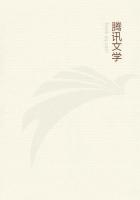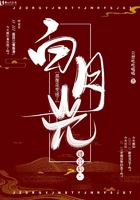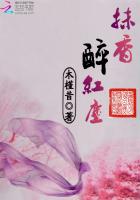In this softened mood Raphael's eyes wandered over the room, now filled with memories and love, and where the very daylight seemed to take delightful hues. Then he turned his gaze at last upon the outlines of the woman's form, upon youth and purity, and love that even now had no thought that was not for him alone, above all things, and longed to live for ever. As his eyes fell upon Pauline, her own opened at once as if a ray of sunlight had lighted on them.
"Good-morning," she said, smiling. "How handsome you are, bad man!"The grace of love and youth, of silence and dawn, shone in their faces, ****** a divine picture, with the fleeting spell over it all that belongs only to the earliest days of passion, just as simplicity and artlessness are the peculiar possession of childhood. Alas! love's springtide joys, like our own youthful laughter, must even take flight, and live for us no longer save in memory; either for our despair, or to shed some soothing fragrance over us, according to the bent of our inmost thoughts.
"What made me wake you?" said Raphael. "It was so great a pleasure to watch you sleeping that it brought tears to my eyes.""And to mine, too," she answered. "I cried in the night while Iwatched you sleeping, but not with happiness. Raphael, dear, pray listen to me. Your breathing is labored while you sleep, and something rattles in your chest that frightens me. You have a little dry cough when you are asleep, exactly like my father's, who is dying of phthisis. In those sounds from your lungs I recognized some of the peculiar symptoms of that complaint. Then you are feverish; I know you are; your hand was moist and burning----Darling, you are young," she added with a shudder, "and you could still get over it if unfortunately----But, no," she cried cheerfully, "there is no 'unfortunately,' the disease is contagious, so the doctors say."She flung both arms about Raphael, drawing in his breath through one of those kisses in which the soul reaches its end.
"I do not wish to live to old age," she said. "Let us both die young, and go to heaven while flowers fill our hands.""We always make such designs as those when we are well and strong,"Raphael replied, burying his hands in Pauline's hair. But even then a horrible fit of coughing came on, one of those deep ominous coughs that seem to come from the depths of the tomb, a cough that leaves the sufferer ghastly pale, trembling, and perspiring; with aching sides and quivering nerves, with a feeling of weariness pervading the very marrow of the spine, and unspeakable languor in every vein. Raphael slowly laid himself down, pale, exhausted, and overcome, like a man who has spent all the strength in him over one final effort. Pauline's eyes, grown large with terror, were fixed upon him; she lay quite motionless, pale, and silent.
"Let us commit no more follies, my angel," she said, trying not to let Raphael see the dreadful forebodings that disturbed her. She covered her face with her hands, for she saw Death before her--the hideous skeleton. Raphael's face had grown as pale and livid as any skull unearthed from a churchyard to assist the studies of some scientific man. Pauline remembered the exclamation that had escaped from Valentin the previous evening, and to herself she said:
"Yes, there are gulfs that love can never cross, and therein love must bury itself."On a March morning, some days after this wretched scene, Raphael found himself seated in an armchair, placed in the window in the full light of day. Four doctors stood round him, each in turn trying his pulse, feeling him over, and questioning him with apparent interest. The invalid sought to guess their thoughts, putting a construction on every movement they made, and on the slightest contractions of their brows. His last hope lay in this consultation. This court of appeal was about to pronounce its decision--life or death.
Valentin had summoned the oracles of modern medicine, so that he might have the last word of science. Thanks to his wealth and title, there stood before him three embodied theories; human knowledge fluctuated round the three points. Three of the doctors brought among them the complete circle of medical philosophy; they represented the points of conflict round which the battle raged, between Spiritualism, Analysis, and goodness knows what in the way of mocking eclecticism.
The fourth doctor was Horace Bianchon, a man of science with a future before him, the most distinguished man of the new school in medicine, a discreet and unassuming representative of a studious generation that is preparing to receive the inheritance of fifty years of experience treasured up by the Ecole de Paris, a generation that perhaps will erect the monument for the building of which the centuries behind us have collected the different materials. As a personal friend of the Marquis and of Rastignac, he had been in attendance on the former for some days past, and was helping him to answer the inquiries of the three professors, occasionally insisting somewhat upon those symptoms which, in his opinion, pointed to pulmonary disease.
"You have been living at a great pace, leading a dissipated life, no doubt, and you have devoted yourself largely to intellectual work?"queried one of the three celebrated authorities, addressing Raphael.
He was a square-headed man, with a large frame and energetic organization, which seemed to mark him out as superior to his two rivals.
"I made up my mind to kill myself with debauchery, after spending three years over an extensive work, with which perhaps you may some day occupy yourselves," Raphael replied.














